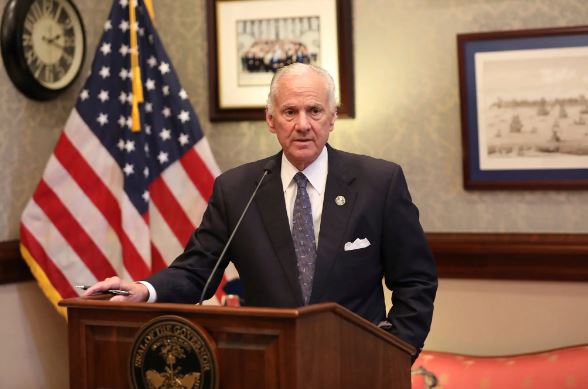South Carolina Governor Henry McMaster signed a controversial bill on Tuesday that bans healthcare professionals from performing gender-transition surgeries, prescribing puberty blockers, and managing hormone treatments for patients under 18. This decision aligns South Carolina with nearly two dozen other states that have enacted similar restrictions on gender-affirming care for minors.
The law, effective immediately, also obligates school staff, including principals and teachers, to inform parents if their children request to use a name or pronouns different from those assigned at birth.
Previous attempts to pass similar legislation in South Carolina in 2021 and 2022 were unsuccessful. In 2022, a broader bill aimed at banning transition care for minors failed to pass in the State House of Representatives. However, lawmakers managed to insert a clause in the state budget prohibiting a pediatric clinic at a public hospital from using state funds for transition care for individuals under 16, leading the clinic to extend the policy to all minors.
This year, banning gender-transition treatment became a top priority for House Republicans. “When God created us, he created us male and female, that’s it,” declared David Hiott, the House majority leader and co-sponsor of the bill, at the beginning of the legislative session in January.
The bill, known as House Bill 4624, was passed by the legislature earlier this month. It not only extends the ban on care for minors to all providers statewide but also prohibits adults under 26 from using Medicaid to cover such treatments.
In a social media post on Tuesday, Governor McMaster stated that the bill “protects our state’s children from irreversible gender transition procedures” and announced plans for a ceremonial signing with its supporters next week.
During a House committee hearing in January, Dr. Elizabeth Mack, president of the South Carolina chapter of the American Academy of Pediatrics, voiced strong opposition to the measure. She stated that “no mainstream organization doesn’t support gender-affirming care,” describing it as “evidence-based, suicide-prevention care.” Dr. Mack also noted that gender-transition surgeries were not currently being performed in South Carolina and that transition care involves careful deliberation among doctors, parents, and children.
Before this legislation, South Carolina and Virginia were the only Southern states without a ban on gender-transition care for minors. With this new law, Virginia remains the sole state in the South without such a restriction.
Legal challenges have been filed in many states with similar bans, resulting in mixed court rulings. In three states, the bans have been temporarily blocked. The U.S. Supreme Court may eventually hear a case against Tennessee’s ban on transition care for minors, which could influence the outcome of legal battles in other states.
A recent survey underscored the challenges faced by transgender and nonbinary Americans, revealing high rates of unemployment and harassment. The survey, which included over 92,000 participants, also found that the majority were satisfied with their decision to transition.
As South Carolina enacts its new law restricting gender-affirming care for minors, the debate over these measures continues to intensify. Proponents argue that the law protects children from making irreversible decisions too early in life, while opponents contend that it denies necessary medical care and support to transgender youth. The legal and ethical discussions surrounding this issue are far from settled, and the future of transgender rights may hinge on forthcoming judicial decisions.

